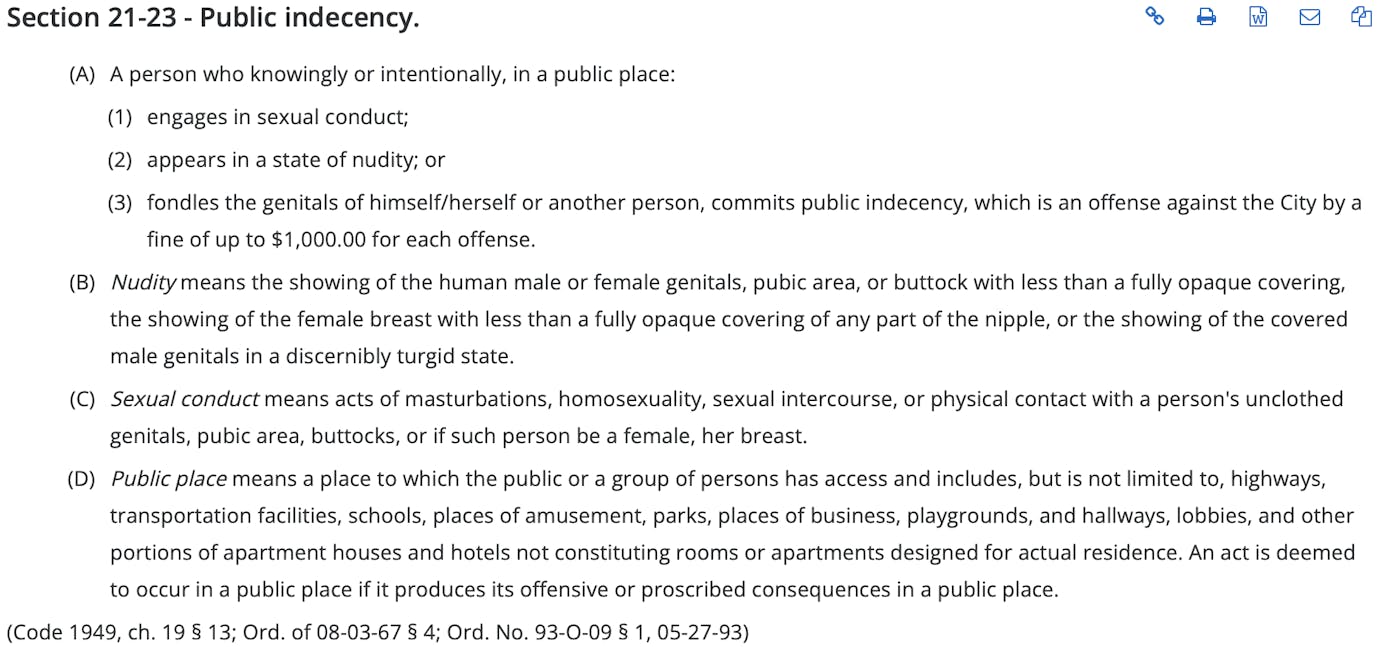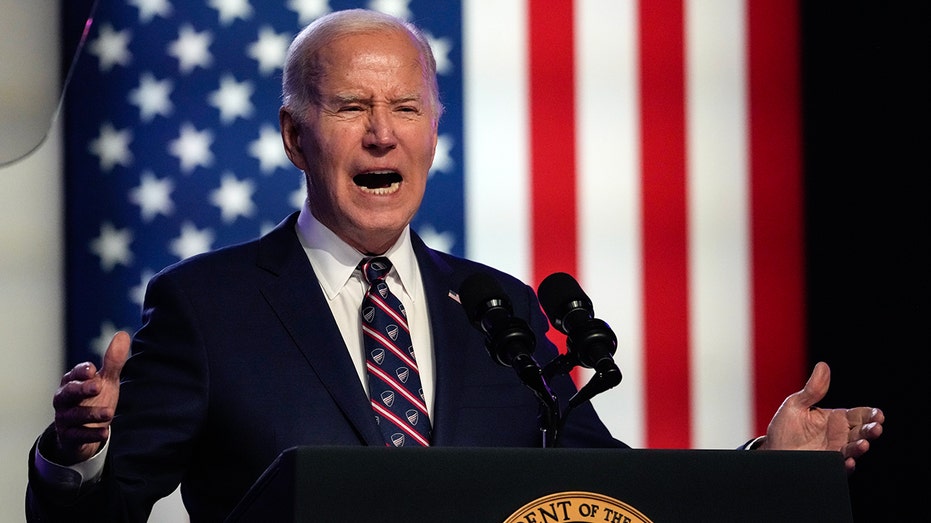Tennessee City Walks Back Ban on Public Homosexuality … Kind Of
The Tennessee city of Murfreesboro has revoked its ban on public homosexuality, but the rules it still has in place continue to unfairly target LGBTQ people.Murfreesboro passed an ordinance in June banning “indecent behavior,” including “indecent exposure, public indecency, lewd behavior, nudity or sexual conduct.” The ordinance specifically mentions Section 21-72 of the city code, which states that sexual conduct includes homosexuality.The city agreed on November 2, following a court order, to remove the mention of homosexuality from the city code, but the change has not yet been codified. Journalist Erin Reed reported that the amended code will go into effect on Friday. But as of publication, homosexuality is still listed as an act of public indecency on the Murfreesboro municipal code website.Meanwhile, the June ordinance is still in effect and being used to unfairly target the LGBTQ community. An ACLU-backed challenge to the ordinance has already been launched, but that hasn’t stopped city officials from implementing the measure. While the indecency ordinance does not specifically mention LGBTQ people, it is similar to the many drag bans passed across the country, all of which were ultimately blocked in court. The ordinance relies on overly vague language to frighten people into self-policing, and it hides behind the justification of “public decency” and protecting children. And the way it has been implemented makes it clear that the ordinance’s intended target is LGBTQ people.City police also have the right to enforce the ordinance, meaning the rules are up to individual interpretation. As long as the city code still officially says homosexuality is banned, a strict or more conservative officer could target LGBTQ people.Last week, the Rutherford County steering committee met to discuss removing all books that might potentially violate the ordinance from the public library. Murfreesboro city officials have already used the ordinance to ban four books that discuss LGBTQ themes.In October, the organizers of BoroPride, the city’s Pride festival, won a court order barring Murfreesboro from enforcing the ordinance against Pride events. The court order also required that the city remove the mention of homosexuality from its public indecency code.“Of course, they only did that after the judge slapped them down,” BoroPride volunteer Matt Ferry told the Murfreesboro Daily News Journal. “The problem is that the mayor and the city manager keep equating LGBTQ+ with actual sex predators, which couldn’t be further from the truth.”“It’s hurting our LGBTQ+ community,” Ferry said. “It’s intimidating them. They were already afraid to come out in the open in Murfreesboro. This is going to make it worse.”

The Tennessee city of Murfreesboro has revoked its ban on public homosexuality, but the rules it still has in place continue to unfairly target LGBTQ people.
Murfreesboro passed an ordinance in June banning “indecent behavior,” including “indecent exposure, public indecency, lewd behavior, nudity or sexual conduct.” The ordinance specifically mentions Section 21-72 of the city code, which states that sexual conduct includes homosexuality.
The city agreed on November 2, following a court order, to remove the mention of homosexuality from the city code, but the change has not yet been codified. Journalist Erin Reed reported that the amended code will go into effect on Friday. But as of publication, homosexuality is still listed as an act of public indecency on the Murfreesboro municipal code website.
Meanwhile, the June ordinance is still in effect and being used to unfairly target the LGBTQ community. An ACLU-backed challenge to the ordinance has already been launched, but that hasn’t stopped city officials from implementing the measure.
While the indecency ordinance does not specifically mention LGBTQ people, it is similar to the many drag bans passed across the country, all of which were ultimately blocked in court. The ordinance relies on overly vague language to frighten people into self-policing, and it hides behind the justification of “public decency” and protecting children. And the way it has been implemented makes it clear that the ordinance’s intended target is LGBTQ people.
City police also have the right to enforce the ordinance, meaning the rules are up to individual interpretation. As long as the city code still officially says homosexuality is banned, a strict or more conservative officer could target LGBTQ people.
Last week, the Rutherford County steering committee met to discuss removing all books that might potentially violate the ordinance from the public library. Murfreesboro city officials have already used the ordinance to ban four books that discuss LGBTQ themes.
In October, the organizers of BoroPride, the city’s Pride festival, won a court order barring Murfreesboro from enforcing the ordinance against Pride events. The court order also required that the city remove the mention of homosexuality from its public indecency code.
“Of course, they only did that after the judge slapped them down,” BoroPride volunteer Matt Ferry told the Murfreesboro Daily News Journal. “The problem is that the mayor and the city manager keep equating LGBTQ+ with actual sex predators, which couldn’t be further from the truth.”
“It’s hurting our LGBTQ+ community,” Ferry said. “It’s intimidating them. They were already afraid to come out in the open in Murfreesboro. This is going to make it worse.”


